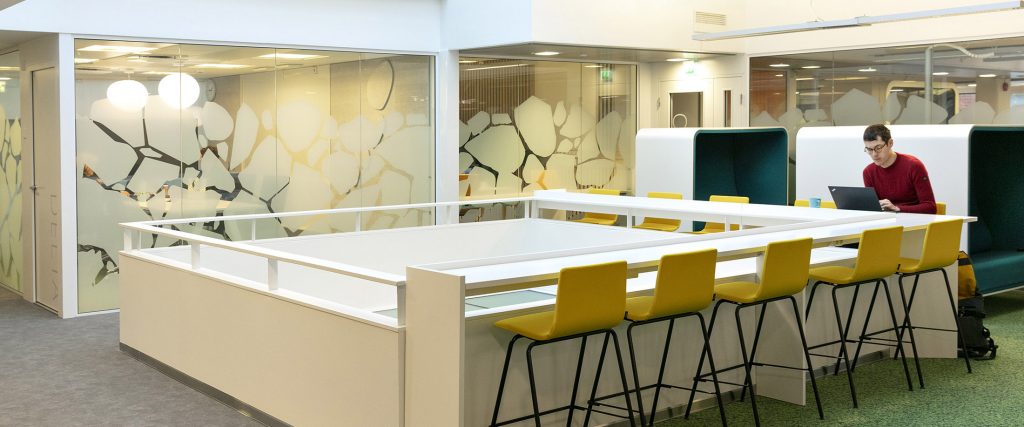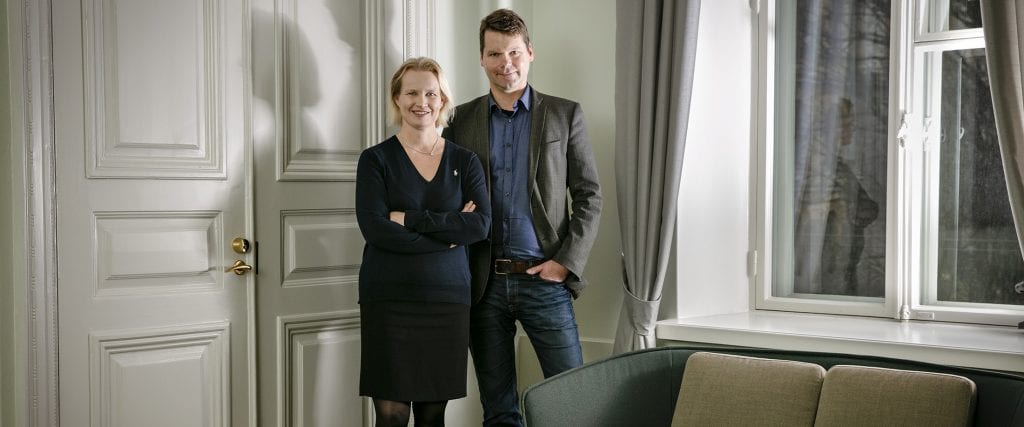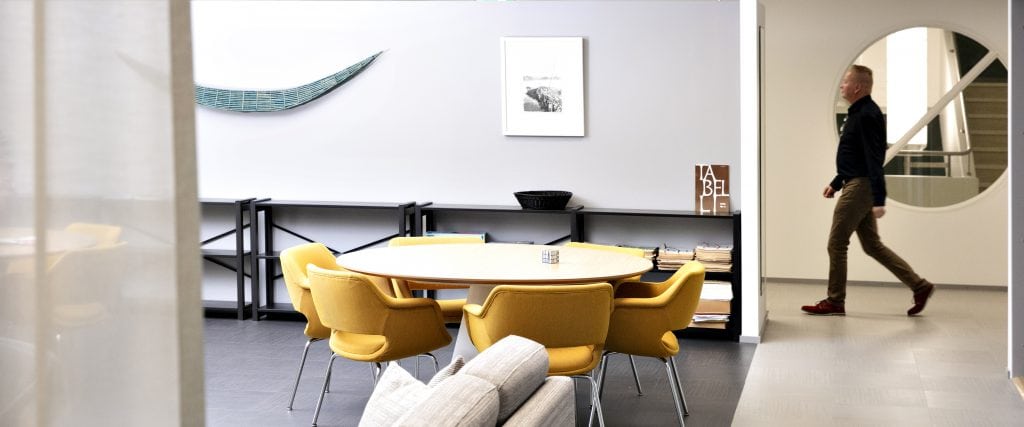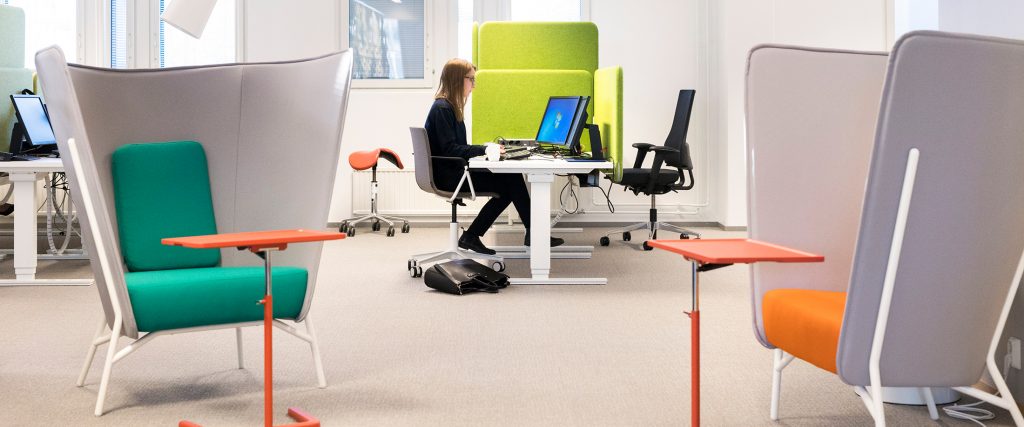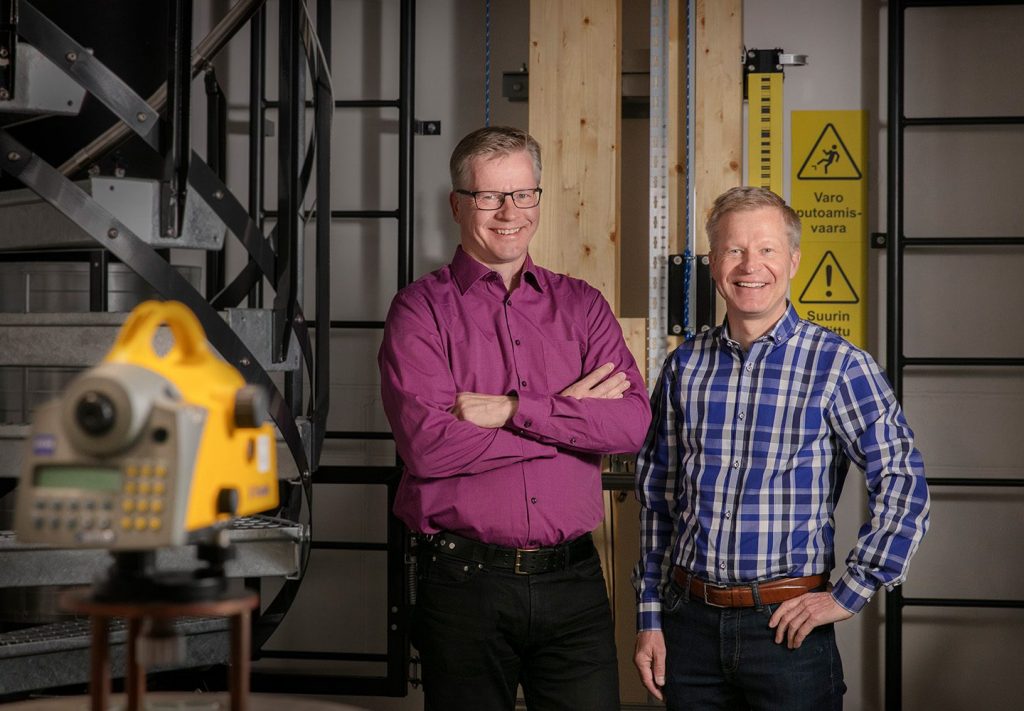
Finnish Geospatial Research Institute’s long journey to a functional working environment
The Finnish Geospatial Research Institute (FGI) conducts the kind of research that places particular demands on the working environment. When the institute grew too big for its premises in Masala, Kirkkonummi, it found a new location in Otaniemi, Espoo. The new premises include specialised spaces, for example, for calibration activities and research related to self-driving cars. Collaboration with other research institutes is easier now that the premises offer more flexibility when needed.
Show all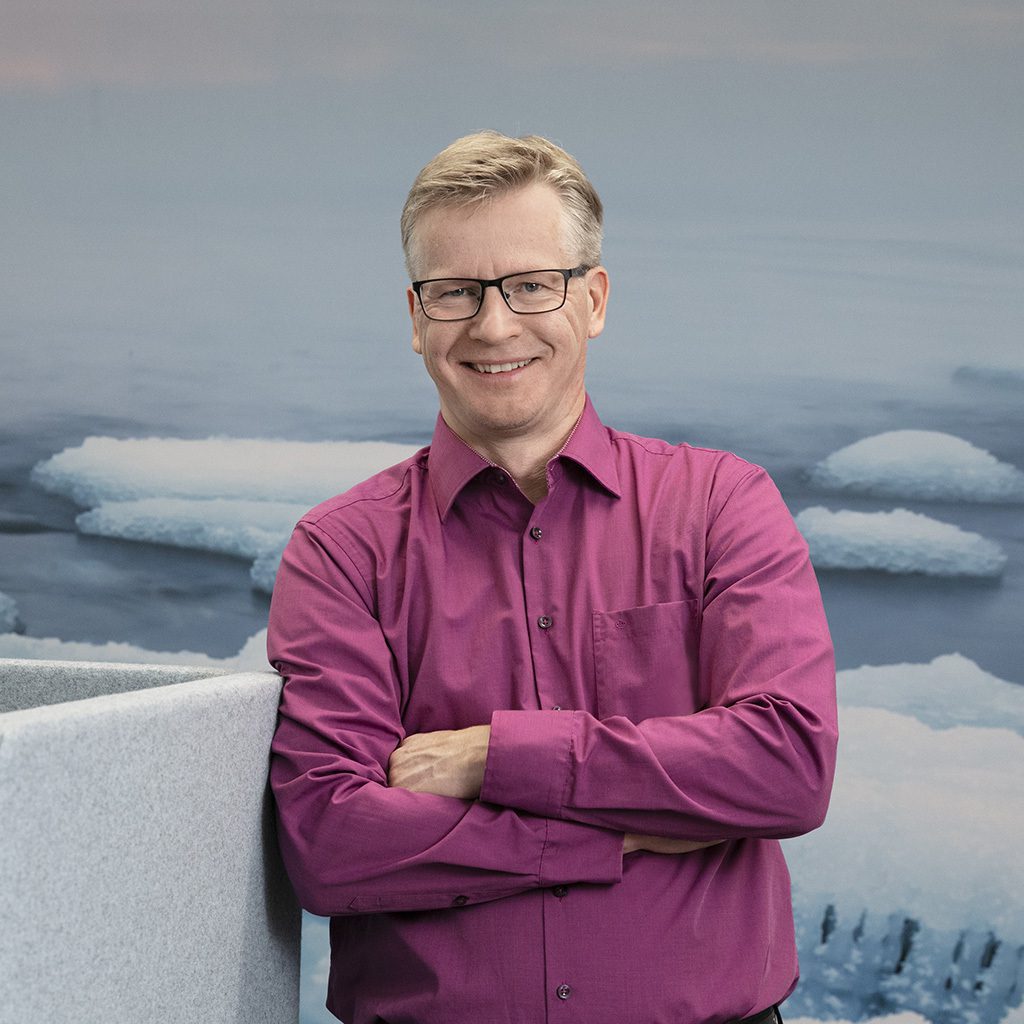
Finnish Geospatial Research Institute: Researchers’ opinions were taken into account
My job was to make sure that the wishes and needs of researchers were heard when the new premises were designed. It was great that the premises weren’t designed as a standard office space and that the researchers working in the space also got to voice their opinions. The staff had a genuine opportunity to participate in the process. Asking questions and wanting justifications for viewpoints is a normal part of our work. I’m sure many people would have preferred keeping their old office. However, most of the staff moved to the new premises in good spirits. At the Vuorimiehentie premises, there are a lot of different kinds of spaces for different kinds of work, and we’ve been learning about multi-locational work. There are quiet spaces for independent work that requires concentration and spaces for meetings and working in groups. Individual research groups can reserve a space for the entire duration of the project, and there are solutions, for example, for the storage of confidential materials. Some of the office premises can only be accessed by people with security clearance. We also got the facilities we needed for the calibration of measuring instruments and other kinds of specialised work. The workstations are much more comfortable, and the acoustics are better. We’re also happy that we got a decent lunch restaurant. It’s easier to recruit competent people when the premises are attractive.
Research Manager Mika Karjalainen
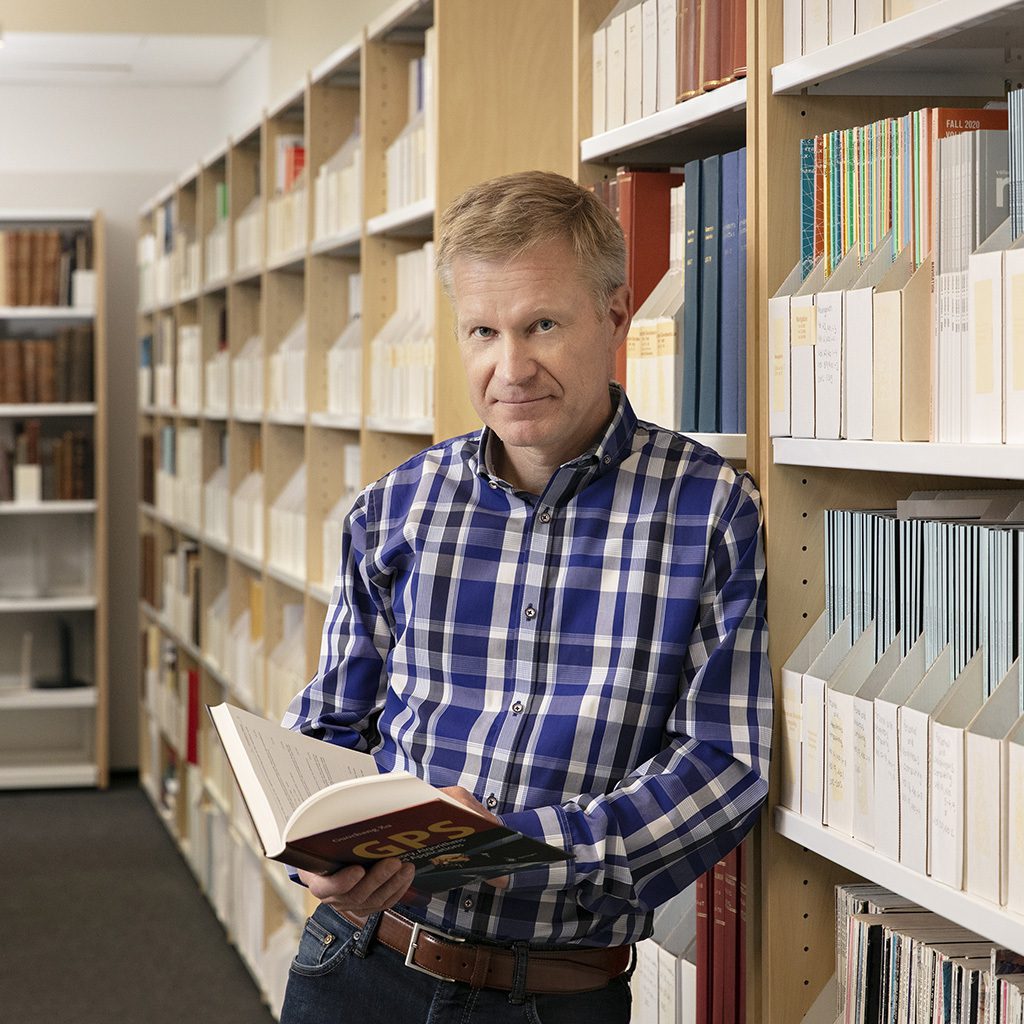
Finnish Geospatial Research Institute: Facilities that adapt to different needs
We needed premises that could be adjusted flexibly, because a lot of our work is project-based and the number of employees and the content of the projects varies. We also wanted to be more centrally located and physically closer to our key partners and stakeholders, such as Aalto University, VTT and other research institutes. The Geological Survey of Finland (GTK) is now our closest neighbour. We already collaborated with them in the past, but being located in the same building will make our collaboration much easier in the future. Even though there are no more designated workspaces for people in our Vuorimiehentie premises in Otaniemi, the facilities are much more suitable for us. The new annex that was built specifically for our needs makes it easier for us to do, for example, calibration, research related to self-driving cars and other research activities that require specialised premises or the construction of research equipment. The processing of confidential information is also better organised in the new premises. The staff has really made the space their own. The lobby space connecting Café Mittari and the library has become a place where employees gather to have conversations and network with others in the building in a new way. I myself have started working more from the office than I did before.
Development Manager Jyrki Mononen
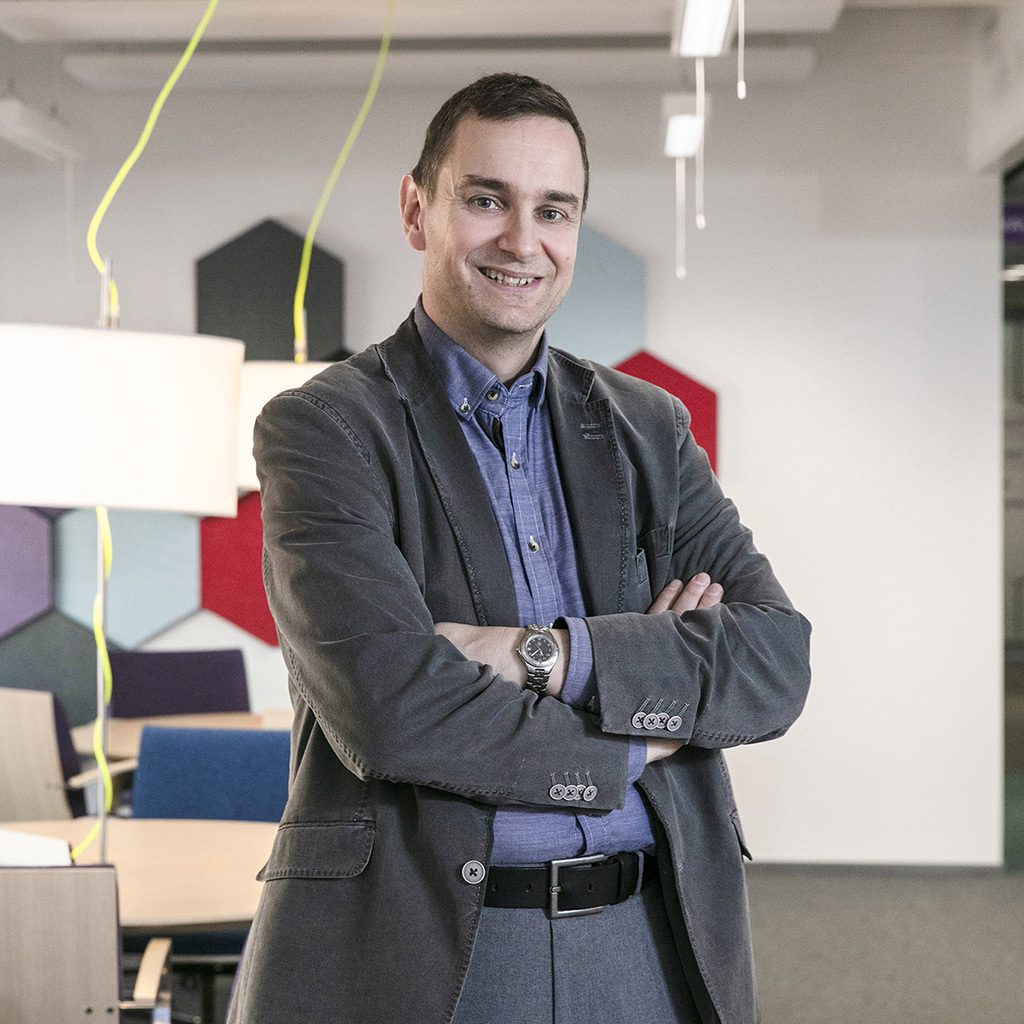
Finnish Geospatial Research Institute: Outsourcing made sense
Our old premises in Masala, Kirkkonummi didn’t have the spaces we needed for our work. We also needed more laboratory facilities. We defined the requirements for the new premises so that they would also serve us in the years to come. When the project began, we didn’t know of a suitable building for our premises. We made comparable plans for two different sites. We carried out the planning project according to the NLS project manual like we would any other kind of project. Even though there was more bureaucracy involved, it made the whole easier to manage. The five-year journey had many twists and turns. In addition to the change in the working environment, we also updated our working methods. Senate Properties and the consulting KVA Architects handled the support of our change management process professionally. It made sense to outsource the service as we didn’t have the necessary resources for it. Without Senate Properties facilitating the collaboration with our researchers, nothing would have come of this. Now our researchers have facilities that support their work, which is crucial for obtaining results. As a facilities management specialist, this project taught me a lot about the expert work conducted at a research institute.
Facilities Management Specialist Matti Mäensivu
National Land Survey of Finland/Premises Services
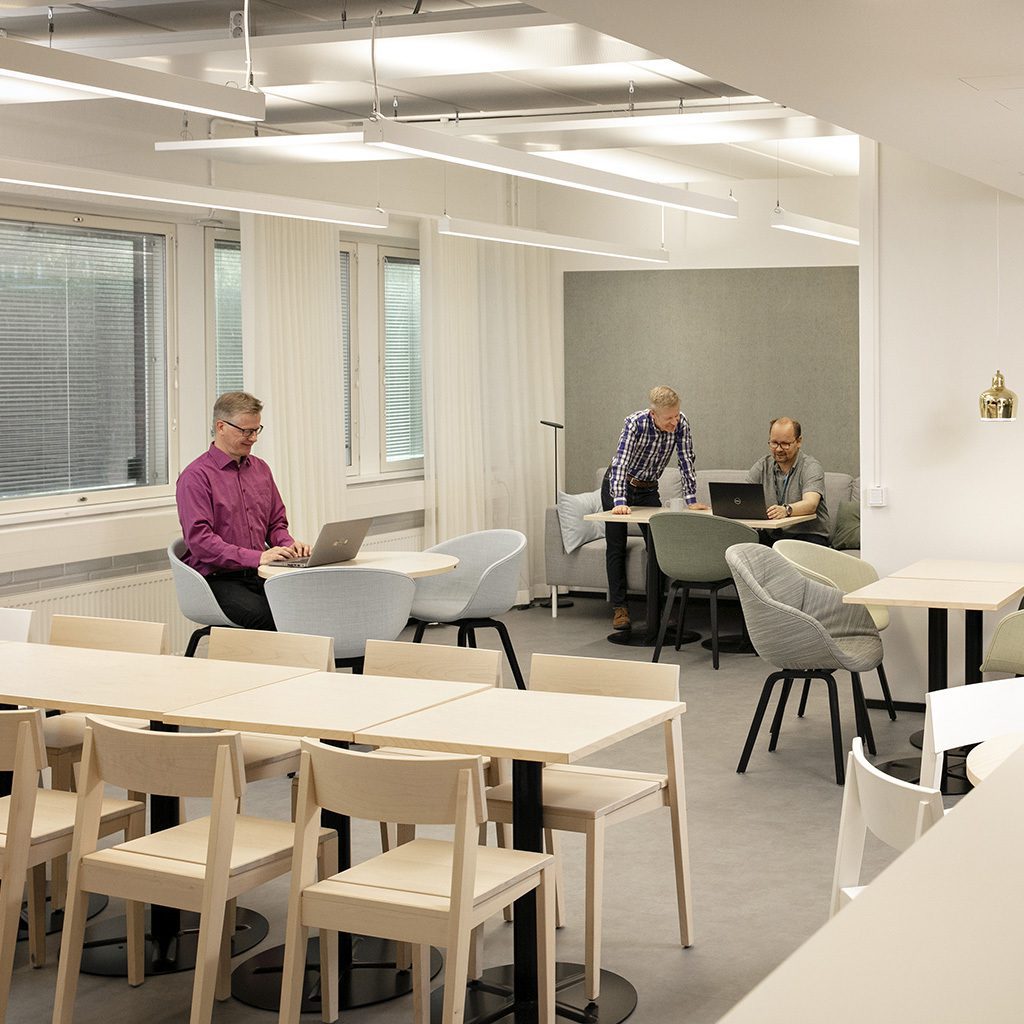
Senate Properties: Challenging and engaging employees to participate
The old premises of FGI in Masala were designed for 55 people. Over time, the operations had grown and the number of employees had doubled. Eight years ago they reached the conclusion that the premises we no longer functionally or structurally suitable for the research institute’s needs. Nevertheless, some were resistant to change. Many researchers were concerned that their work would be compromised, and they were sceptical whether the new premises would genuinely serve their purpose. We soon noticed that there was need for extensive expertise in change management and working environment development. We also needed to challenge FGI employees to imagine new ways of organising their work. We supported the organisation in every possible way in understanding the need for change and implementing it. We challenged employees to participate in many ways. We organised information events, workshops and excursions, utilised insights from other research organisations and supported supervisors in supporting their employees. As we were implementing such a large and long-term change, it was especially important to continuously share information and give employees the chance to ask questions and participate in a timely manner. The customer is the best expert in what it is that they need. Our job is to interpret that knowledge and find the right premises.
Account Manager Riitta Sirén, Senate Properties

